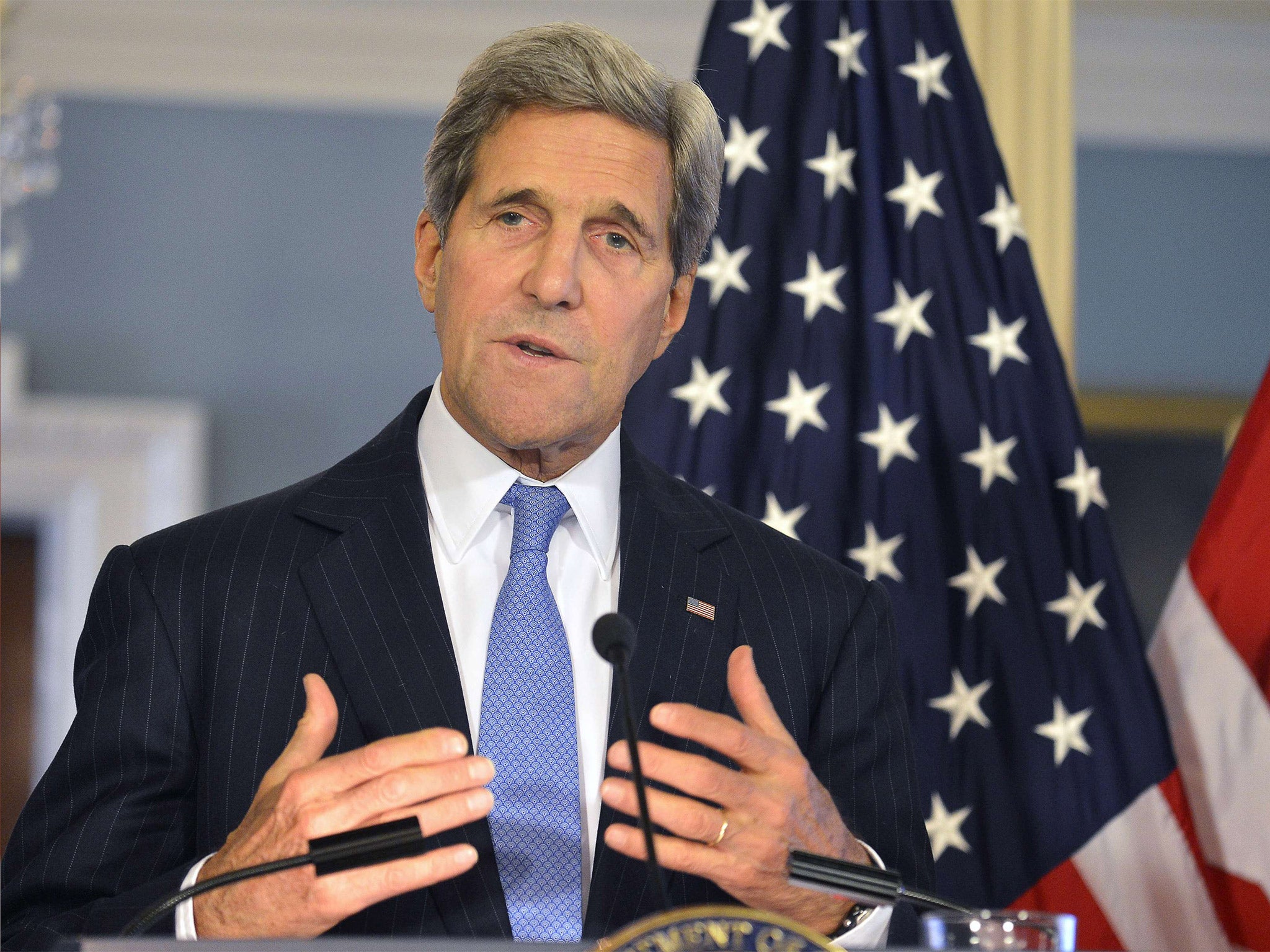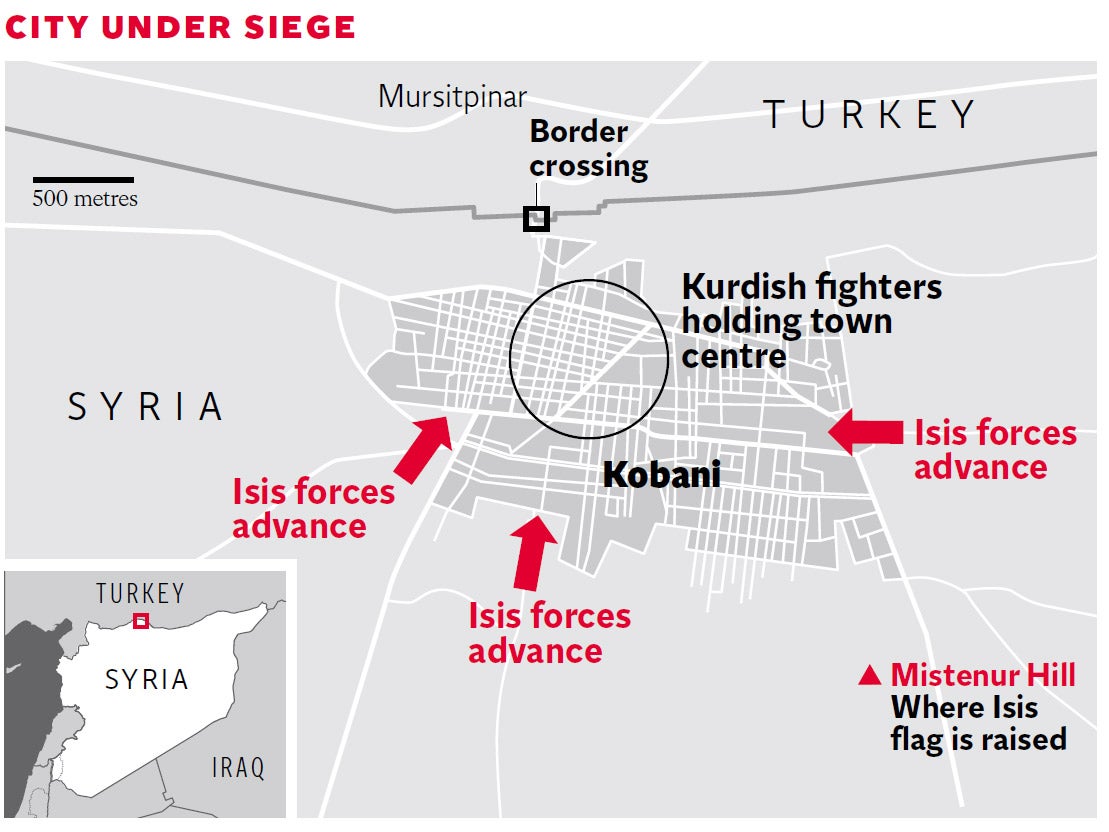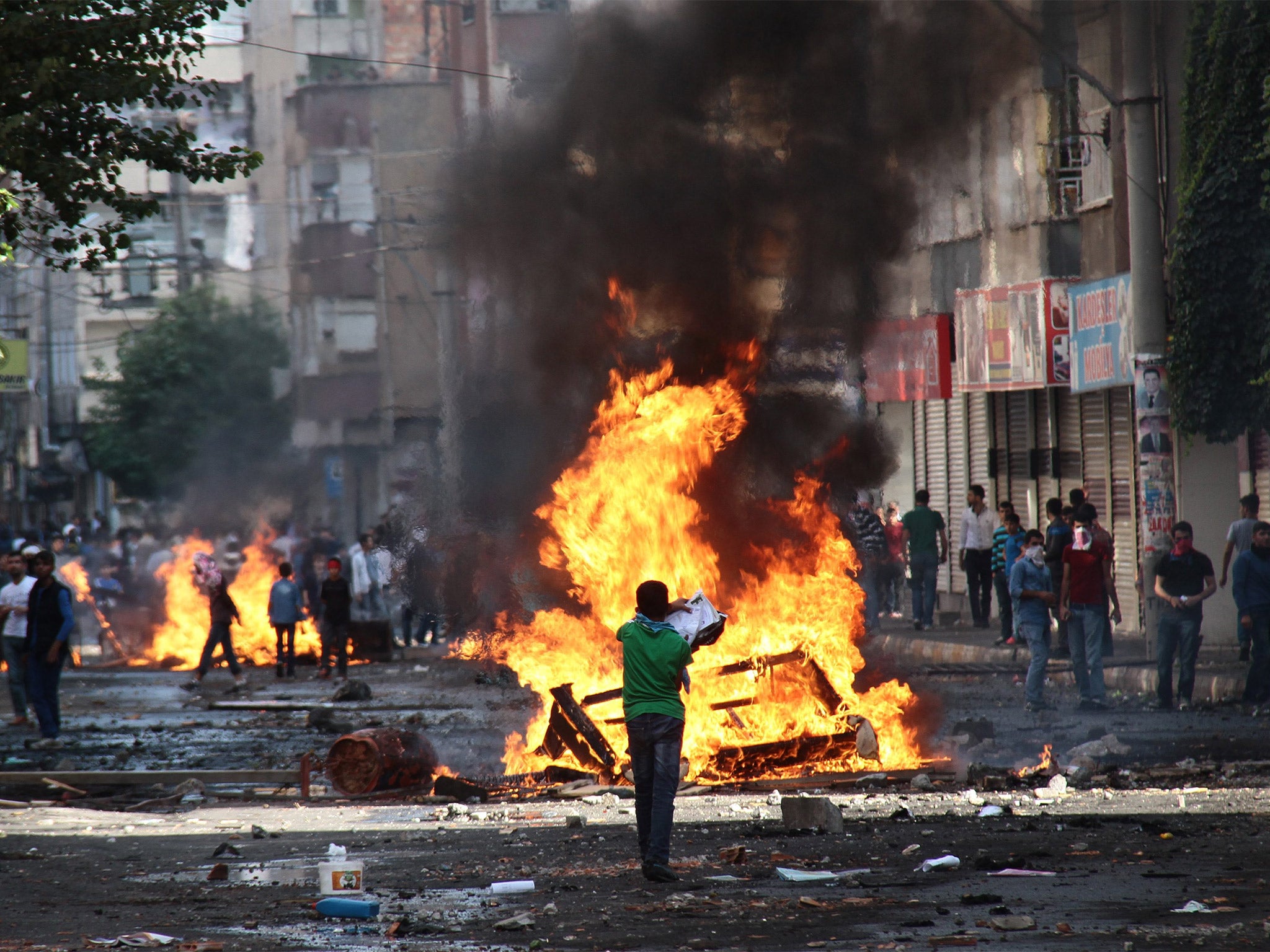Isis in Kobani: John Kerry says preventing the fall of the town is 'not a strategic objective'
As the fighting continues, the lack of assistance for those living in Kobani sparked more violent demonstrations across Turkey

The civil war in Syria rocked Turkey – a Nato member state – when riots broke out in a number of cities, opening age-old wounds between Turks and Kurds.
As officials in Ankara continued to debate whether to take an active role in the fight against Isis, rival factions stirred old enmities. The country was rocked by explosive clashes in more than 20 cities as Kurds protested against the government’s perceived inaction over the plight of those living in the Kurdish city of Kobani, just a few miles inside Syrian territory.
Turkish tanks have lined up opposite Kobani, to guard against any incursion across the border by Isis fighters, but there seems to be little appetite to enter the besieged city to help the Kurdish population inside.
Turkey has taken in more than 180,000 refugees who fled Kobani, but has stopped short of joining a US-led coalition against the Sunni militants. Instead, it has called for the creation of a buffer zone and a no-fly zone, which it hopes would secure its border and limit the flow of refugees. The proposal has been rebuffed by the Americans.
Speaking tonight, the US Secretary of State, John Kerry, suggested that preventing the fall of Kobani was not a strategic US objective. “As horrific as it is to watch in real time what is happening in Kobani, you have to step back and understand the strategic objective,” he said.
“Notwithstanding the crisis in Kobani, the original targets of our efforts have been the command and control centres, the infrastructure.”
Mr Kerry said he expected Turkey to decide “over the next hours, days” what role it would play against Isis.
The lack of assistance for Kurds in Kobani sparked more violent demonstrations across Turkey. At least 19 people died as Kurdish protesters threw Molotov cocktails and rocks at police. They were met with tear gas, sticks and water cannons.

The south-eastern city of Diyarbakir, the de facto Kurdish capital in Turkey, suffered the worst violence and highest death toll.
A curfew was extended until Thursday after at least eight people died during the protests.
Diyarbakir is one of six cities that remained on lockdown. “The city is under curfew until 6am and nobody can come in or out. There were no police on our streets last night – just us and them,” said Bayram Baran, a 25-year-old lawyer from Diyarbakir.

To further complicate Turkey’s political patchwork, much of the violence occurred between rival Kurdish factions, who attacked each other as well as local branches of several parties, including the ruling Justice and Development Party (AKP) and the Nationalist Movement Party (MHP).
While the political actors debated the future of the city, the battle for Kobani continued to rage as a flurry of US air strikes appeared to temporarily halt the advance of Isis.
Several thunderous booms were followed by mushroom clouds clearly visible from the Turkish side of the border.
Only a mile away, the Turkish town of Caykara rocked as explosion after explosion – each one louder than the last – hit Kobani.
Men watching the battle from the roof of the local mosque shouted: “Long live America. Long live America”, believing they were hearing US air strikes.
The low whirr of aircraft could be heard before the crashes. The strikes appeared to be helping Kurdish fighters, reportedly hitting a hospital used by Isis as a base in the east of the city, in which they already have a foothold. The People’s Protection Units (YPG), the Syrian franchise of the Kurdistan Workers Party (PKK), have been defending the city.
The battle concentrated on the eastern side as dusk fell, with YPG fighters and Isis militants clashing in street-by-street fighting.
“Isis tried to enter the city today with tanks, and a big truck full of weapons to bomb the YPG in the centre, but YPG were ready and they blew up the truck at about 4pm local time,” Zara Misto, editor of Welati.com, who has been reporting from inside Kobani since the beginning of the battle, told The Independent.
Kurds in the nearby town of Suruc took to the streets again, this time to support those living in Kobani.
Ekrem Ahmad, 40, a mechanic from Kobani said: “I’m happy to see Kurds as well as British, American, French and German people protesting in support of Kobani. It really raises our morale.
“The governments may not give us weapons, but their people give us hope.”